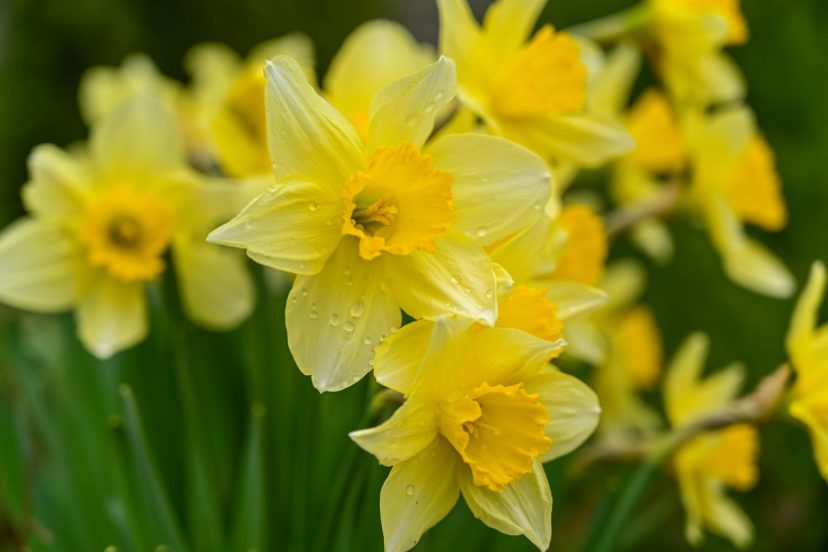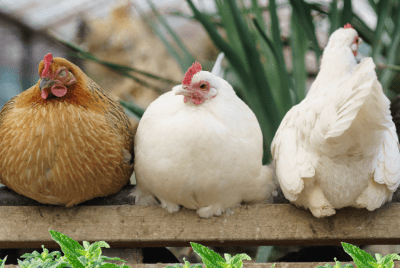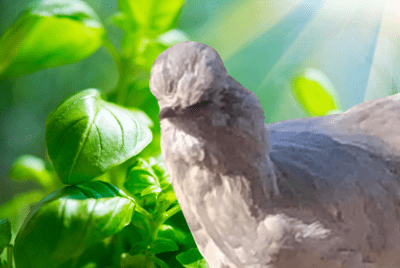Common Garden Plants Toxic to Chickens.
1.Introduction: Common Garden Plants Toxic to Chickens
Common Garden Plants Toxic to Chickens can pose a serious threat to your feathered friends. It’s crucial for poultry owners to be aware of common garden plants that are toxic to chickens to prevent accidental poisoning. Some dangerous plants can cause symptoms ranging from mild illness to fatal reactions in chickens, making it imperative to identify and remove these toxic plants from their environment. Educating yourself about plants harmful to chickens can help you create a safe and healthy space for your beloved birds to thrive in your garden.
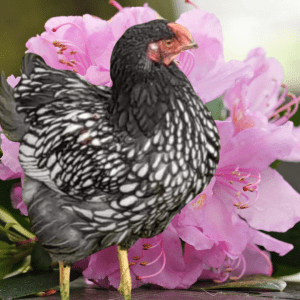
1.1. Key Takeaways:
- Awareness: It’s important to be aware of common garden plants that are toxic to chickens to prevent harm to your flock.
- Common Toxic Plants: Some common garden plants that are toxic to chickens include azaleas, daffodils, and rhododendrons.
- Symptoms of Poisoning: Symptoms of plant poisoning in chickens may include diarrhea, weakness, and seizures.
- Prevention: To prevent plant toxicity, ensure your chickens have access to a safe and secure run that is free from harmful plants.
- Consult a Vet: If you suspect plant poisoning in your chickens, consult a veterinarian immediately for proper diagnosis and treatment.
2. Identifying Common Garden Plants that are Toxic to Chickens
2.1. Classic Symptoms of Poisoning in Chickens
Little is more distressing than seeing your beloved flock of chickens feeling under the weather. In the context of toxic plants, classic symptoms of poisoning in chickens may include weakness, drooling, diarrhea, gasping for breath, seizures, or even sudden death. It’s imperative to be vigilant about what your chickens are consuming to ensure their well-being. I always have activated charcoal on hand.
If you suspect your chicken has eaten a toxic plant, it’s crucial to act quickly to ensure their safety. Here are some natural steps you can take while seeking professional veterinary help:
- Remove Access to the Plant: Immediately take away any remaining toxic plants to prevent further ingestion.
- Provide Fresh Water: Ensure your chicken has plenty of clean water to help flush out toxins.
- Activated Charcoal: If available, administer a small amount of activated charcoal to help absorb toxins in the digestive system. (Consult a vet for proper dosage.) See the bottom of this page for more instructions.
- Herbal Remedies:
- Milk Thistle: Known for supporting liver health, it may help detoxify the body.
- Garlic: Acts as a natural antibiotic and detoxifier. (Use sparingly)
- Monitor Symptoms: Keep a close eye on your chicken for signs of distress, such as lethargy, vomiting, diarrhea, or difficulty breathing.
- Provide a Calm Environment: Stress can exacerbate health issues, so keep your chicken in a quiet, safe space.
⚠️ Important: While these natural remedies can support your chicken, they are not a substitute for professional veterinary care. Contact a veterinarian immediately if you suspect your chicken has ingested something toxic.
Stay safe and take prompt action to ensure the well-being of your feathered friend!
2.2. How to Identify Dangerous Plants
The best way to protect your chickens is to know which plants in your garden might be dangerous to them. Many common garden plants are toxic to chickens, such as azaleas, daffodils, and oleander. Some plants may only pose a threat if a large quantity is consumed, while others can be harmful in small amounts. It’s crucial to familiarize yourself with the plants in your garden and remove any that could potentially harm your feathered friends.
Dangerous plants may not always be obvious, so it’s important to do some research or seek advice to ensure your garden is a safe environment for your chickens. Consider installing barriers or fencing to keep your chickens away from any plants that could be harmful to them.
3. Top Garden Plants that are Toxic to Chickens

3.1. Harmful Flowers and Bulbs
One common garden plant that is toxic to chickens is the daffodil. Although they add a pop of color to your garden, daffodils contain toxins that can be harmful to chickens if ingested. It’s best to keep these flowers out of reach of your feathered friends to avoid any potential health issues.
3.2. Poisonous Shrubs and Trees
Any gardener with chickens should be cautious around plants like rhododendrons and yew bushes, as they are poisonous to chickens. These shrubs and trees contain toxins that can be dangerous if consumed by chickens. It’s important to ensure that your chickens do not have access to these plants in your garden.
It is crucial to research the plants in your garden and make sure they are safe for your chickens to be around. Always err on the side of caution when it comes to toxic plants, as some can be fatal to your feathered friends. If you are unsure about a specific plant, consult with a poultry expert or a veterinarian to ensure your chickens’ safety.
3.3. Herbs Poisonous to Chickens
Not all herbs are safe for chickens—some can be surprisingly toxic! 🌿 While herbs like oregano and thyme are great for boosting their health, others should be kept far away. Comfrey, foxglove, and plants from the nightshade family (like belladonna) are known to be poisonous if ingested by chickens. Even herbs you might think are harmless, like chives, parsley, and certain types of mint, can cause issues when consumed in large quantities. To keep your flock safe, always double-check before adding new plants to their diet or coop area. Knowing which herbs to avoid is key to maintaining a healthy, happy flock!
4. Safe Gardening Practices
4.1. Designing a Chicken-Friendly Garden
Many of us love our chickens and want to provide them with a safe and enjoyable environment to roam. When designing a chicken-friendly garden, it’s important to consider the plants that are safe for your feathered friends. Opt for chicken-friendly plants such as sunflowers, marigolds, and herbs like sage and thyme. These plants not only add beauty to your garden but also provide safe foraging options for your chickens.
4.2. Preventative Measures to Protect Your Flock from Common Garden Plants That Are Toxic to Chickens
On your journey to creating a chicken-friendly garden, it’s necessary to take preventative measures to protect your flock from toxic plants. Protect your chickens by familiarizing yourself with common garden plants that can be harmful to them. Be mindful of popular ornamental plants like azaleas, rhododendrons, and daffodils, which are toxic to chickens if ingested.
Gardening for your chickens should be a joyful experience, knowing that your garden is a safe haven for them to explore. By being aware of potential dangers and taking necessary precautions, you can create a beautiful outdoor space that both you and your feathered companions can enjoy.
5. Summing up:
On the whole, it is important for chicken owners to be aware of common garden plants that are toxic to chickens. By avoiding these plants and taking necessary precautions, chicken owners can keep their flock safe and healthy. Regularly monitoring the garden for any potential hazards and providing a varied diet for the chickens can also help prevent accidental ingestion of toxic plants. Keeping chickens safe from harmful plants will ensure they can continue to thrive and provide enjoyment for their owners.
6. FAQ about Common Garden Plants That Are Toxic to Chickens
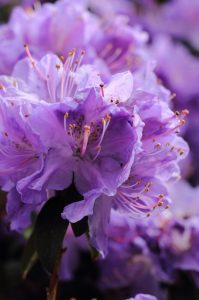
Q: Which common garden plants are toxic to chickens?
A: Plants such as rhubarb, azaleas, foxglove, and daffodils are toxic to chickens and should be kept out of their reach.
Q: How can I prevent my chickens from eating toxic garden plants?
A: Ensure your chickens have access to a well-balanced diet to deter them from foraging for potentially harmful plants in the garden. Also some plants like Daffodils can be moved at the appropriate time of year to your front yard or a spot where the chickens can’t go. If its a bush or a tree it can have netting or a fence put around it, if you have free ranging chickens.
Q: What are the symptoms of plant toxicity in chickens?
A: Symptoms may include diarrhea, weakness, difficulty breathing, and seizures. If you suspect plant poisoning, contact a vet immediately.
Q: Are there safe alternatives to toxic plants for my garden?
A: Yes, consider planting chicken-friendly herbs like mint, basil, and oregano, or vegetables such as kale, lettuce, and cucumbers.
Q: How can I create a chicken-friendly garden environment?
A: Make sure to fence off hazardous plants, provide ample space for chickens to roam, and supplement their diet with nutritious treats to deter plant foraging.
Giving Activated Charcoal to Your Chicken
When it comes to administering activated charcoal to chickens, it’s crucial to proceed with caution. Activated charcoal can help absorb toxins in the digestive system, but the appropriate dosage depends on several factors, including the chicken’s size, the type of toxin ingested, and the severity of the situation.
⚠️ Important Considerations:
- Consult a Veterinarian Immediately: Before giving any treatment, seek professional veterinary advice. A veterinarian can provide the correct dosage and ensure that activated charcoal is appropriate for your chicken’s specific situation.
- General Guidelines (Not a Substitute for Professional Advice):
- Dosage: While specific dosages can vary, a common general guideline (used in various animals) is approximately 1 gram of activated charcoal per kilogram of body weight. However, this is not a one-size-fits-all recommendation and should only be used under veterinary supervision.
- Administration: Activated charcoal is typically mixed with water to create a slurry that can be gently administered to the chicken.
- Potential Risks:
- Overdose: Giving too much activated charcoal can lead to gastrointestinal issues or interfere with the absorption of essential nutrients.
- Underlying Health Issues: If the chicken has other health problems, activated charcoal might not be suitable.
- Monitoring: After administration, closely monitor your chicken for any adverse reactions or changes in behavior. Report these to your veterinarian immediately.
🔍 Additional Tips:
- Prevent Access to Toxic Plants: Ensure that your chickens cannot access plants or substances that are toxic to them.
- Provide Fresh Water: Always have clean water available to help flush out toxins.
- Maintain a Calm Environment: Reducing stress can aid in your chicken’s recovery.
🌟 Final Reminder: While activated charcoal can be beneficial in certain poisoning cases, it is not a cure-all and should never replace professional veterinary care. Always prioritize consulting with a veterinarian to ensure the safety and health of your chickens.
How Rosemary Strengthens Immunity in Chickens
Unleash the Power of Lemon Balm in Your Coop
Boost Your Chickens Mood with the Power Of Valerian
The Power Of Garlic fro Chickens Revealed
11 Ways you can Accidentally Kill Your Chickens

